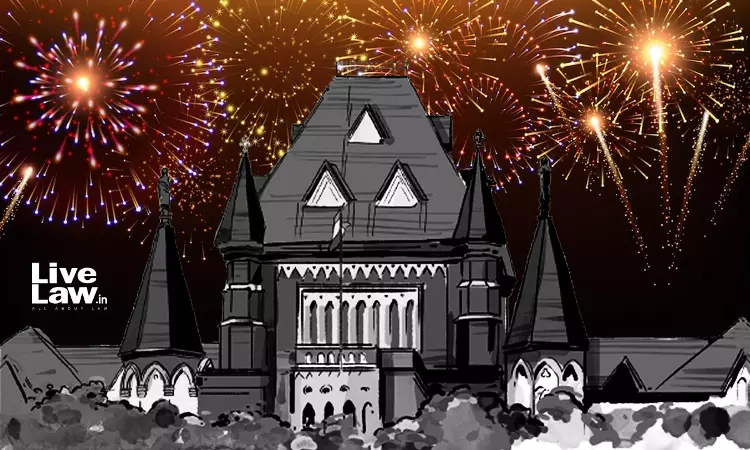Bombay High Court Reduces Time For Bursting Firecrackers To Two Hours, Seeks Statutory Mechanism To Combat Pollution
Sharmeen Hakim
10 Nov 2023 8:53 PM IST

Next Story
10 Nov 2023 8:53 PM IST
The Bombay High Court today reduced the window during which bursting of firecrackers is permitted in the Mumbai Metropolitan Region to 8 PM – 10 PM in view of previous order of the Supreme Court in Arjun Gopal v. Union of India passed on November 8, 2021.“The SC order says people should burst firecrackers at a designated time and designated places. Also that if banned firecrackers are...
